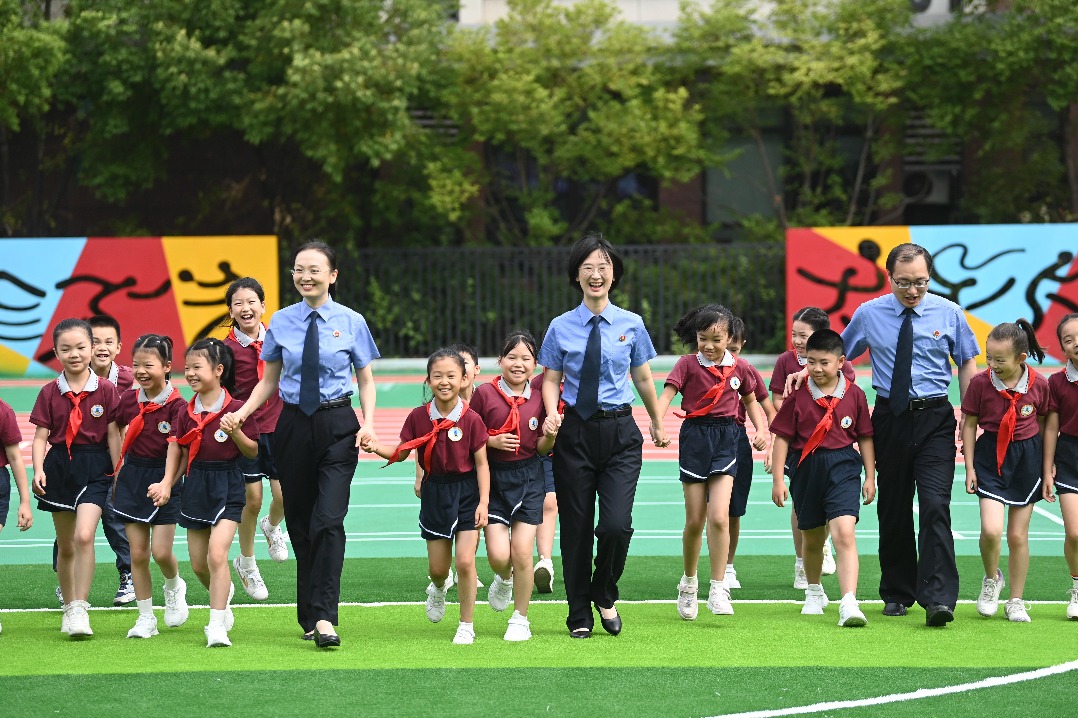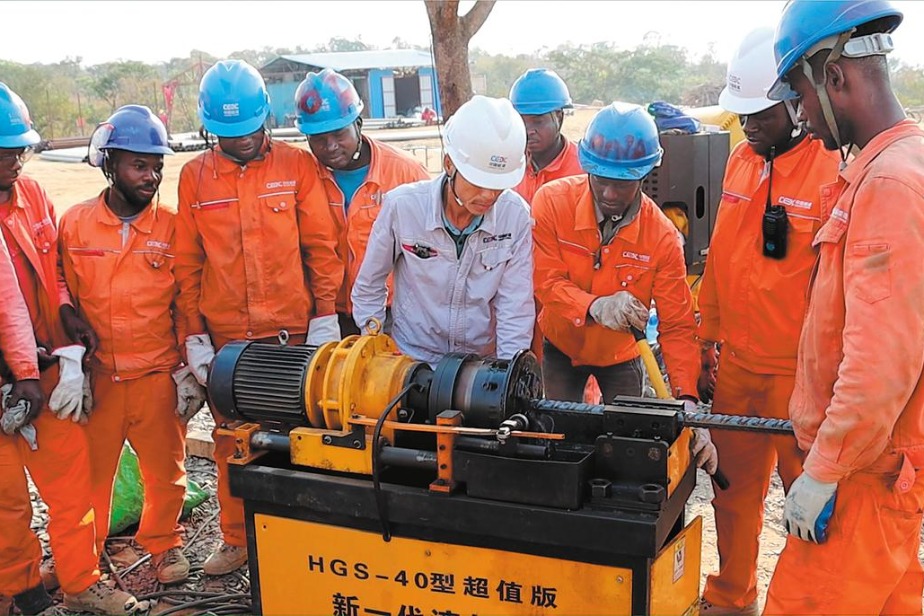Support to boost preservation at prehistoric ruins


The mysteries of Hongshan culture have laid dormant for more than 5,000 years at the Niuheliang archaeological site in Chaoyang, Northeast China's Liaoning province. Since its discovery in 1981 and first excavation in 1983, generations of archaeologists have been working on this large-scale ritual center for Hongshan society, dating back around 5,000 to 5,800 years.
Sacrificial public buildings such as a goddess temple, a three-tiered round altar and rubble mound tombs have been found in Niuheliang, together with stone tools, pottery, and most notably, exquisite jade ware — depicting dragons, birds and figures.
According to Jia Xiaobing, a researcher with the Institute of Archaeology at the Chinese Academy of Social Sciences who is leading the excavation of the site, archaeological discoveries at Niuheliang have indicated the existence of a worship system dedicated to heaven, earth and ancestral gods.
The late Neolithic Hongshan culture once thrived in southeastern Inner Mongolia autonomous region, western Liaoning and northern Hebei provinces, and is among the most important prehistoric cultures in Northeast China. Niuheliang forms the largest site complex of Hongshan culture.
As intensive archaeological efforts take place at the Niuheliang site hidden in hilly forests — mainly seeking to reveal more about its social structure and sacrificial ritual system — a recent document co-released by the general offices of the National Cultural Heritage Administration, the Ministry of Natural Resources and the Ministry of Agriculture and Rural Affairs will hopefully facilitate future study of this expansive site.
The notice on strengthening the planning and land use for the protection of large-scale archaeological sites published in December aims to balance the preservation and utilization of cultural heritage with agricultural production and rural development. Niuheliang is among the 36 key large-scale archaeological sites listed in the notice that are in urgent need of land use and require high-level support.
Jia said Niuheliang is a site complex mostly located in forested areas, where ecological conservation requirements impose many restrictions on land use. The notice provides a basic guarantee and considerable flexibility in negotiating land use for excavation and research.
Large-scale archaeological sites are distinguished by their vast size, Jia said, with intricate stratification of soil layers, extended periods of use and a rich variety of relics. They contain social and cultural information that far exceeds other sites.
Excavating such sites usually takes a long time and requires a gradual process for understanding their internal structures and functions. Therefore, the design of protection plans should be aligned with the long-term archaeological excavations.
This is especially important for the construction of protective shelters and exhibition halls, as any carelessness could damage or encroach upon the sites and relics and create hidden problems for future excavation and research, Jia added.
He admitted that the limitations on conditions during early excavations have resulted in some inappropriate measures taken to protect the site. However, current excavation works have already taken future conservation and exhibition plans into account.
Twenty years ago, the nation established a special fund of 2 billion yuan ($273 million) for the protection of large-scale archaeological sites. Since then, a series of documents, policies and measures have been launched to enhance the financial support and land use assurance regarding the excavation and protection of the sites and the construction of national archaeological ruins parks, as well as combating and preventing crimes against the cultural relics.
Chen Xingcan, former head of the CASS institute, said that over the years, negotiations for land use — with local governments, residents and developers, for example — have been a consuming process in advancing archaeological efforts. It reflects a universal dilemma in balancing cultural heritage preservation with people's livelihood and economic development, short-term with long-term interests.
As a member of the 14th National Committee of the Chinese People's Political Consultative Conference, Chen made a suggestion during the two sessions in 2024 on strengthening land use assurance for cultural relics sites and national archaeological ruins parks. The recent notice, to some extent, can be seen as a response to Chen's suggestion.
He said while providing a policy basis for negotiation of land acquisition for large-scale archaeological sites, the recent notice also curbs unreasonable expansion of construction land use under the guise of cultural heritage protection and utilization.
The nation's numerous large-scale archaeological sites besides the 36 listed in the notice are also in need of further support, Chen said. While they may refer to the notice for implementation, the newly amended Law on Protection of Cultural Relics, which took effect on March 1, can also facilitate works around these immovable major relic sites.
- Xi visits exhibition marking 70th founding anniv. of Xinjiang Uygur autonomous region
- Salute to our dedicated frontline workers
- Eco-friendly co-cultivation boosts income and sustainability in Qianjiang
- Shenzhou XX crew to conduct fourth spacewalk in coming days
- Driving overall development of Xinjiang's pharmaceutical industry
- Symbiotic Tianmu





































